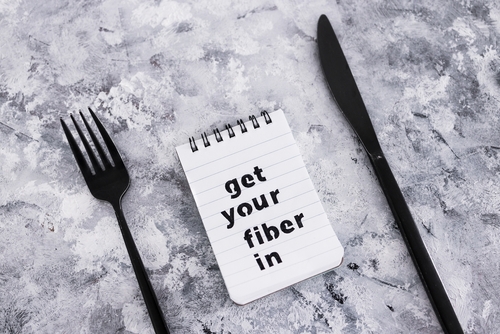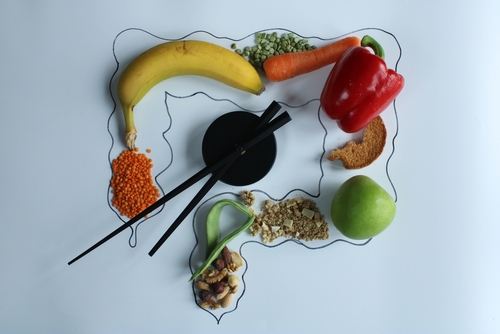I have ulcerative colitis and know how hard it is to manage flare-ups and unpredictable symptoms. I tried nutrition after months of unsuccessful treatments. I realized how important a nutritionist was for managing my illness. This article will explain why nutritionists are crucial to ulcerative colitis management.
Understanding your body is key to managing any chronic health condition. Nutritionists tailor diets and lifestyles to individual needs to improve health. This knowledge is crucial for managing ulcerative colitis.
Nutritionists have extensive experience treating digestive issues like ulcerative colitis, so they know which foods alleviate symptoms and provide optimal nutrients. With guidance, you can manage your condition and live more comfortably. In this article, discover how a nutritionist can help with Ulcerative Colitis.
What Is Ulcerative Colitis
I struggle with ulcerative colitis. I realize how crucial it is to understand this condition. UC is a colon-based inflammatory bowel disease. Nutritionists can manage pain, cramping, diarrhea, rectal bleeding, fatigue, and weight loss.
UC patients have dietary needs. Nutritionists can help create an ulcerative colitis diet that includes fiber-rich fruits, vegetables, and whole grains and avoids processed foods. They suggest adding probiotics and prebiotics to your diet for digestive health.
These small diet changes improved my symptoms and health. UC management is easier with a nutritionist. IBD causes are next.
Causes Of Inflammatory Bowel Disease (IBD)

Nutritionists are great for ulcerative colitis. Nutritionists can evaluate your diet, lifestyle, and other factors to determine what may be causing inflammation and create a personalized plan. They can also advise on symptom-management foods and identify food sensitivities or allergies.
Research suggests that diets affect inflammatory bowel diseases like Crohn’s disease and ulcerative colitis. IBD nutritionists can help you modify your diet to avoid inflammation and flare-ups. Some people need more protein or omega fatty acids, while others have trouble digesting fiber.
A nutritionist can work with healthcare providers to test for nutrient deficiencies, food sensitivities or allergies, and medication compliance in addition to managing symptoms through diet. Inflammation must be reduced while nutrients are provided for healing and good health. This personalized approach helps many people with inflammatory bowel diseases live healthier lives. My transition sentence into “symptoms of Crohn’s disease and ulcerative colitis” would be: Let’s discuss these conditions’ symptoms to better understand them.
Symptoms Of Crohn’s And Ulcerative Colitis
Having a nutritionist to manage Crohn’s or Ulcerative Colitis (IBD) symptoms can make all the difference. To reduce IBD symptoms, you and your nutritionist must first identify them.
Abdominal pain is the most common IBD symptom. Diarrhea, another common symptom, can lead to dehydration if not managed properly. IBD patients also experience fatigue, weight loss, and low iron levels. Nutritionists can identify food triggers and create personalized meal plans to reduce these symptoms.
IBD patients must eat nutritiously and avoid foods that cause inflammation or worsen symptoms. A nutritionist can help IBD patients meet dietary goals while minimising symptoms. This knowledge and support helps people with Crohn’s or ulcerative colitis (IBD) manage their condition and feel better faster.
Maintaining health requires understanding IBD diet and nutrition needs.
Diet And Nutrition Needs For People With IBD

Ulcerative colitis can be stressful, so a good nutrition plan is crucial. A nutritionist can help you create an eating plan that provides energy and nutrients and manages your symptoms.
IBD management may depend on fiber. Fiber prevents Crohn’s and ulcerative colitis constipation. Some fibers are beneficial, but others can irritate the digestive tract and worsen symptoms like abdominal pain and diarrhea. A dietitian who specializes in gastrointestinal disorders can help you get the right amount of fiber for optimal health without flare-ups.
IBD patients need healthy diets to get enough vitamins, minerals, and other micronutrients. A nutritionist can customize meal plans based on lifestyle factors like food allergies, likes, dislikes, budget, and more. Nutritionists can create healthy, tasty meals that meet all nutritional needs.
Working with a dietitian can simplify managing your condition so you can focus on getting better. Knowing which foods help manage ulcerative colitis allows you to make positive dietary changes now, setting you up for long-term success. Understanding IBD diagnosis and treatment options helps us improve our health.
Diagnosis And Treatment Options
Get a proper diagnosis and treatment for ulcerative colitis. There is no one-size-fits-all treatment for this condition. Personalized advice from a nutritionist can help you make these choices.
To understand your disease, a nutritionist will ask about your symptoms and medical history. They may recommend endoscopies or stool samples for dietary changes. From here, they will create a customized nutrition plan to reduce inflammation and improve symptom management with you.
This plan often eliminates dairy and processed sugar and increases nutrient-dense foods like fresh produce, whole grains, nuts, and seeds.
They may also recommend gut health supplements if testing or assessment reveals deficiencies.
IBD Scholarship programs help pay for ulcerative colitis nutrition plans.
Regardless of your condition management stage, working with a qualified nutritionist can boost energy and quality of life.
Benefits Of Working With A Nutritionist
Nutritionists can help UC patients in many ways. Nutritionists know IBD patients’ nutritional needs and create customized diets. Nutritionists help UC patients manage symptoms and improve health by providing specialized dietary advice.
An IBD scholarship program, which subsidizes ulcerative colitis medical care, is the first benefit of working with a nutritionist. UC patients can afford nutritional advice from experts. Nutritionists also specialize in residue diets for UC patients. A residue diet avoids fiber-rich foods like whole grains, nuts, seeds, legumes, dried fruit, and raw vegetables, which can worsen diarrhea and abdominal pain. Instead, it emphasizes low-fiber produce, lean proteins, and healthy fats.
Finally, nutritionists help manage stress through healthy eating, exercise, and relaxation. Getting enough sleep each night can reduce anxiety, which can worsen colitis flare-ups. Working with a nutritionist will improve your quality of life with ulcerative colitis.
Nutritionists can help people manage their conditions by understanding their unique dietary needs, from avoiding processed foods to ulcerative colitis diets. Read more to know discover how a nutritionist can help with Ulcerative Colitis.
Specialized Diets For Ulcerative Colitis

Diet changes can be overwhelming for ulcerative colitis patients. A nutritionist can create a customized diet that reduces symptoms.
First, they will examine your diet to determine which foods may cause flare-ups or worsen the condition. Dairy products can irritate and worsen symptoms. Your nutritionist may recommend an elimination diet like the SCD or LFD for IBD patients.
Whole grains, lean proteins, vegetables, fruits, nuts, and seeds will be discussed by your nutritionist as anti-inflammatory foods.
They will create a meal plan based on lifestyle factors like physical activity, stress management, and other health issues.
This comprehensive approach provides all the nutrients needed for optimal health while managing ulcerative colitis symptoms.
To live symptom-free, a qualified professional must create a nutritional plan tailored to your needs.
Nutritional Supplements To Support Gut Health
As a nutritionist, I know that a good diet can help ulcerative colitis patients manage and prevent flare-ups. Supplements can help maintain gut health for this condition. Key nutrients:
- Probiotics—these beneficial bacteria can help restore balance in your digestive system by introducing healthy microorganisms into your gut; they may also be able to reduce inflammation.
- Prebiotics—these act as food sources for probiotics and other beneficial bacteria; they play an important role in maintaining intestinal health.
- Omega-3 fatty acids—studies have shown these fatty acids can help reduce inflammation, improve digestion, and protect against colon cancer.
- Vitamin D—this vitamin helps regulate immune function which can help prevent flare-ups of UC.
Gut health supplements can help UC patients avoid flare-ups.
Before starting any supplement regimen, consult a professional because everyone’s needs vary depending on diet, age, and lifestyle. A healthcare provider can help UC patients incorporate effective supplementation strategies into a holistic management plan.
IBD-avoidance foods are next.
Foods To Avoid With IBD
I struggle to maintain a healthy diet while managing Ulcerative Colitis. Nutritionists provide expert advice and customize diets. Avoiding foods that cause IBD flares is crucial.
A nutritionist can help me decide which foods are bad for me as a UC patient. Avoid sugary and fatty processed foods because they cause gut inflammation. Due to their high fiber content, broccoli and cauliflower can also worsen UC symptoms. Limiting dairy products helps prevent intestine irritation.
Monitoring your tolerance levels and body signals will help you find the right foods.
Tracking food reactions and digestion changes can help create a personalized diet plan. Individualized meal plans improve ulcerative colitis management and reduce flare-ups.
Meal Planning Strategies For People With Ulcerative Colitis

Ulcerative colitis makes meal planning difficult. Working with a nutritionist to create an individualized nutrition plan for your condition is best. They will help you choose or avoid foods based on your needs.
Fruits, vegetables, lean proteins, and healthy fats are essential. To reduce inflammation and other ulcerative colitis symptoms, your nutritionist may suggest avoiding processed foods. Healthy snacks can be tasty and nutritious. Instead of chips or ice cream, try air-popped popcorn or frozen fruit.
Working with a doctor to make small diet changes can improve ulcerative colitis symptoms.
RDNs can create a personalized diet for you. This step towards better health can change your daily mood. Let’s discuss IBD nutrition label reading.
How To Read Nutrition Labels When Managing IBD
Nutrition helps manage ulcerative colitis. A registered dietitian can create a personalized nutrition plan to reduce symptoms and improve quality of life. They can help IBD patients read nutrition labels. Understanding food ingredients helps us choose healthy foods.
Understand serving sizes, calorie counts, and macronutrient breakdowns to read a nutrition label (carbohydrates, proteins, and fats). Dietitians can clarify these ingredients. If you have IBD-related inflammation or sensitivity, knowing this information is crucial.
Dietitians can also suggest nutrition label reading resources. Many supermarkets offer free classes or pamphlets on ingredient lists and nutrition. They’ll help you eat healthier while still enjoying your favorite foods. Moving on, IBD patients benefit from exercise.
Benefits Of Exercise For IBD Management

I can improve my ulcerative colitis treatment by exercising regularly. Exercise strengthens digestive muscles and reduces intestinal inflammation. Staying healthy reduces flare-ups and makes managing symptoms easier.
My diet includes strength training and aerobic exercise like running or swimming. Low-impact exercises like yoga increase flexibility and help my body relax from flare-causing stressors. Regular moderate exercise is beneficial for chronic conditions like UC, especially during active flares.
I work with my healthcare team to find the best physical activity for me because everyone’s body reacts differently. With their help, I can design a workout routine that fits my lifestyle while still providing all the benefits of UC exercise.
Practical Tips For Eating Out With Ulcerative Colitis
Nutritionists help manage ulcerative colitis. They can customize a diet for you. This is especially important when eating out because many foods and ingredients can worsen the disease.
A nutritionist can help you avoid flare-causing foods like fried and spicy food when dining out with ulcerative colitis.
If the restaurant offers steamed vegetables and plain proteins like fish or poultry, they can recommend safe alternatives. Eating smaller meals more often may help manage IBD symptoms.
To avoid cross-contamination, look for restaurants with good hygiene.
Finally, since caffeine can worsen ulcerative colitis symptoms, drink water or non-caffeinated beverages. Following these tips, you can enjoy time outside the home while controlling your diet and health.
When managing ulcerative colitis, weight should be monitored by limiting alcohol, eating nutrient-rich foods instead of processed ones, and exercising regularly.
Weight Considerations When Managing Ulcerative Colitis

Weight management is difficult for ulcerative colitis patients. A nutritionist who specializes in IBD can help you create a diet plan and advise you on which foods are best.
Focusing on foods that helped my recovery and avoiding those that worsened symptoms was helpful. I needed to know how different foods affected my energy throughout the day. This information helped my nutritionist create a personalized meal plan to meet my nutritional goals while managing my condition.
My nutritionist also advised me on low FODMAP and SCD diets. They helped me find my best strategies and incorporate them into my daily routine. I’ve improved my symptoms and health by following a strict food diet.
With ulcerative colitis, weight management is crucial, and a professional can help. Thus, working with a nutritionist is a great way to take charge of your health and improve over time. Moving forwards, exploring the mental health aspects of IBD can improve results and overall well being.
Mental Health Components Of Living With IBD
IBD can be overwhelming. Physical and mental support is crucial. IBD-specialized nutritionists can help manage mental health issues.
Nutritionists may recommend eliminating certain foods or adding probiotics to improve ulcerative colitis symptoms. They may also recommend yoga or meditation to reduce flare-ups. To compensate for nutritional deficiencies, they may recommend vitamin and mineral supplements. Working with a nutritionist can help you create an individualized plan to manage the physical and emotional effects of IBD.
A nutritionist may help IBD patients in these ways:
- Creating an individualized meal plan based on personal needs
- Offering suggestions about lifestyle modifications to increase comfort
- Recommending supplements or herbs for symptom relief
- Educating patients about their condition so they can make informed decisions about their treatment options
These resources can help manage the physical and mental effects of this chronic illness. Individualized care is provided by a nutritionist who understands IBD’s unique challenges.
Final Thoughts
Nutritionists help me manage my ulcerative colitis. I improved my symptoms and flare-up management by understanding my diet, lifestyle, and health goals.
My nutritionist also taught me how to prevent UC’s long-term effects with diet. This knowledge empowers me to manage my health without medication. I also learned about Crohn’s Disease and Ulcerative Colitis, which helps me know when to see a doctor.
Nutritionists have improved my ulcerative colitis management. I now know how to adjust my diet based on my flares and what foods are best for UC control. I’m confident I can manage my condition without medication now that I understand. Hopefully, this article gave you ideas on how a nutritionist can help with Ulcerative Colitis.
FAQ
What Are The Risks Of Not Working With A Nutritionist When Managing Ulcerative Colitis?
Non-nutritionist management of ulcerative colitis is risky. I may feel worse or develop more serious complications without professional guidance.
Inflammation, symptom flare-ups, nutritional deficiencies, excessive weight loss or gain, and organ damage are possible. Without a nutritionist, this journey may cause anxiety, depression, and other emotional issues.
I need someone who knows my body and how to nourish it for optimal health. My nutritionist will create a customized plan. They will explain why certain foods should be avoided and which ones I should prioritize to manage my condition and prevent further deterioration.
A knowledgeable dietitian who specializes in digestive disorders like ulcerative colitis can help me regain control of my life by giving me personalized advice.
How Can I Manage Flare-Ups Of Ulcerative Colitis?
Managing ulcerative colitis flare-ups can be overwhelming, so a plan is essential. Consult your doctor or nutritionist about how to manage symptoms first. Having someone who understands my needs helps me manage this condition.
I like to diet. Eating low-fat, high-fiber foods reduces inflammation and improves digestion. Avoiding spicy food, dairy, caffeine, processed meats, and alcohol can reduce flare-ups. Tracking my meals helps me get enough nutrients and stay hydrated, which are essential for ulcerative colitis management.
To handle difficult emotions during a flare-up, create a stress management plan. Yoga, meditation, journaling, and taking time for self-care are examples. These methods can help me manage flare-ups and avoid worsening other symptoms.
I’ve managed my flares by following these steps and staying active and doing what I love.
Are There Any Long-Term Effects Of Having Ulcerative Colitis?
Many of us wonder about ulcerative colitis’ long-term effects. Since UC is a chronic IBD, we don’t always know what’s ahead. This article will discuss UC’s most common long-term effects.
First, UC’s impact on life varies by person. Some people improve, while others have more flare-ups and other issues like joint pain or skin problems. If new symptoms appear or worsen, consult your doctor.
Long-term effects of ulcerative colitis include anaemia due to iron deficiency caused by inflammation, kidney stones due to dehydration, osteoporosis due to low calcium absorption, eye problems like uveitis, which occurs when inflammation spreads outside the GI tract, and even colon cancer since people who have had UC for 8 years or more have a higher risk of colon cancer. It’s obvious that frequent and poorly managed flare-ups increase these risks.
Thus, anyone with ulcerative colitis must stay informed about how this condition may affect them in the future and take proactive steps to manage their symptoms now, such as following a specific nutrition plan and getting regular checkups with their doctor, to stay healthy throughout their lives.
What Are The Differences Between Crohn’s And Ulcerative Colitis?
I’m often asked about Crohn’s vs. ulcerative colitis. I broke down some of the key points here because it can be hard to keep track of everything.
Ulcerative colitis causes colon and rectum inflammation. It causes abdominal pain, diarrhea, weight loss, and fatigue. However, Crohn’s Disease can affect any part of your digestive tract, from your mouth to your anus, but most often the small intestine or colon. This condition causes cramping, bloody stools, fever, extreme tiredness, joint pains, and skin issues.
Differentiating these two conditions:
Ulcerative Colitis affects only the large intestine, while Crohn’s Disease can affect any part of the gastrointestinal system. Each person’s symptoms depend on the severity of their case.
Each patient has medication and nutrition options depending on severity.
Because of lifestyle, medical history, and overall health, ulcerative colitis and Crohn’s disease require customized treatment. Knowing this can help you discuss treatment options with a doctor or nutritionist who specializes in either condition.
Is It Possible To Manage Ulcerative Colitis Without Medication?
Anyone with ulcerative colitis wants to know if they can manage without medication. It’s understandable, but there’s no one-size-fits-all solution for managing the disease.
However, nutritional strategies—along with your doctor’s advice—may help you manage UC effectively and sustainably. A nutritionist can recommend foods for your body type. They could recommend anti-inflammatory supplements.
Nutritional changes can improve energy, digestion, stress, and mental clarity long after UC symptoms have subsided. Dietary changes won’t replace medication, but they may improve your quality of life.
Always consult a doctor before making major diet or lifestyle changes. That way, you can get personalized support to empower you to make positive decisions to manage your ulcerative colitis without medications.




